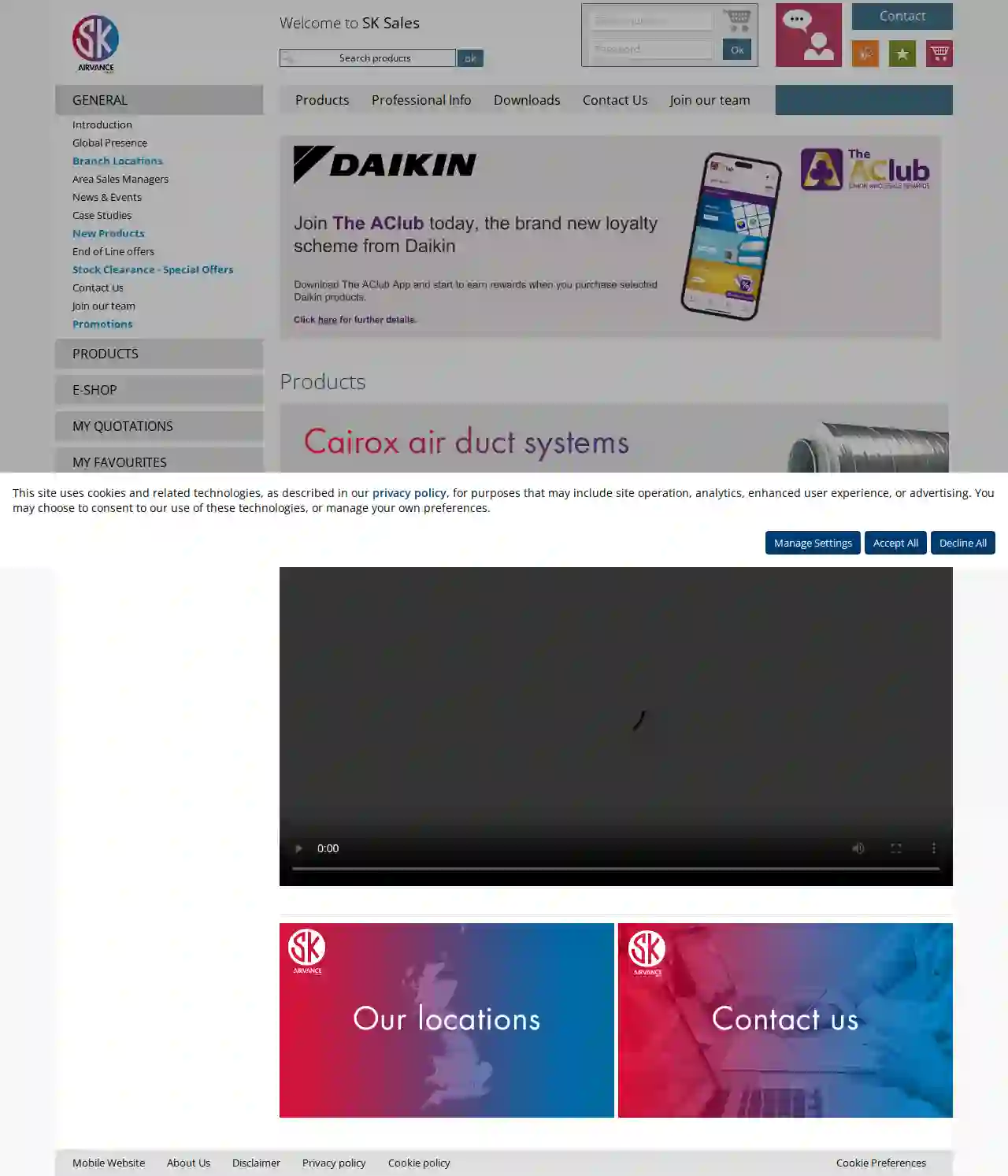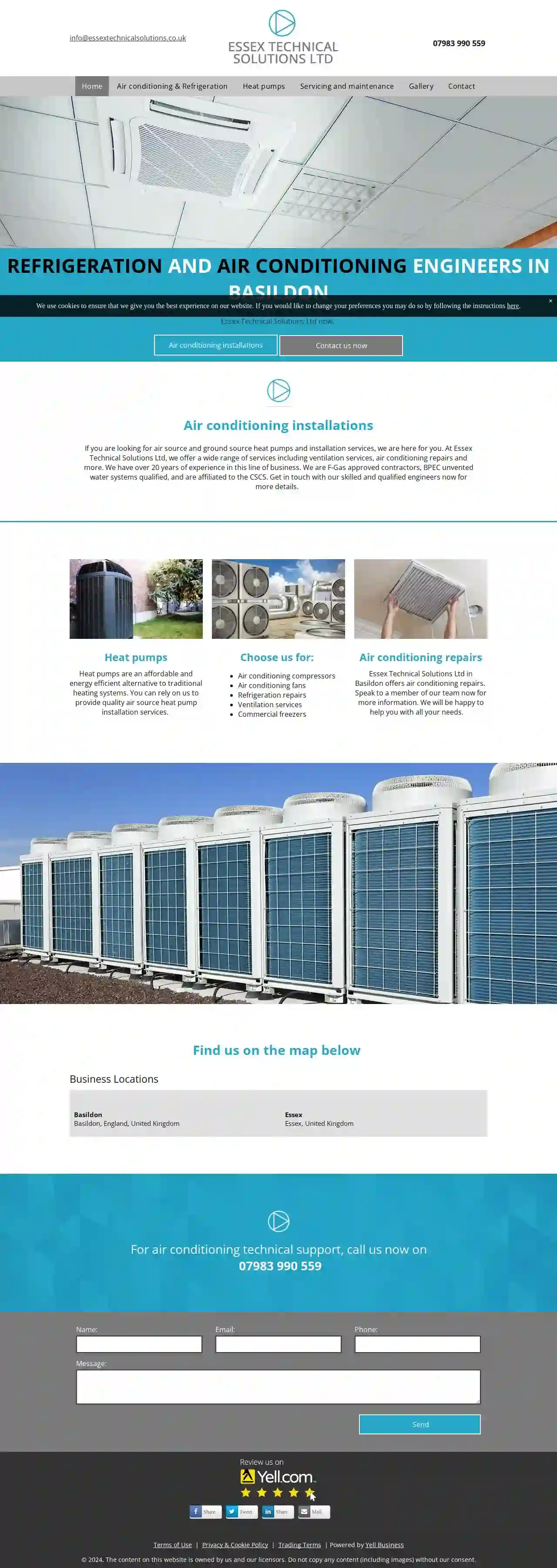Furnace Repair Basildon
Best Furnace Repair in Basildon
Get 3 FREE Heating Repair quotes for your project today! Compare profiles, reviews, accreditations, portfolio, etc... and choose the best service.

Gunning Heating Products Ltd
51 reviewsBasildon, GB- Services
- Why Us?
Get Quote
HeatPumps4Homes
54 reviewsCranes Farm Road, Unit 3 Sovereign Park, Basildon, SS14 3JD, GBHeatPumps4Homes is a specialist installer of air source heat pumps based in Basildon, Essex. We have been heat pump experts for over a decade and aspire to keep providing customers with the best heat pump solutions for their homes. We are an MCS certified company, ensuring that every project is carried out compliant to the current MCS standards, guaranteeing the best design and installation standards for your heating system. We also offer underfloor heating design and installation, which works well with air source heat pumps to give a specialist heating system with low running costs. As an Authorised Ecodan Installer (AEI), we are fully qualified to design, install and support the full range of Mitsubishi air source heat pumps, leaving you with a warm, energy efficient home. We carry out annual servicing for most brands of air source heat pumps to ensure they are running to their optimum efficiency.
- Services
- Why Us?
- Accreditations
- Testimonials
- Gallery
Get Quote
Rydan Mechanical Services Ltd
53 reviewsPaycocke Road, Olympic Business Centre, Basildon, SS14 3EX, GBWelcome to Rydan Mechanical Services, a multi-discipline company. We are a proactive delivery company in a fast-moving world. Our values are our people, our values, office fit out, higher education, private healthcare, and hospitality and leisure. We have KPIs over 90% and reliable working practices, giving us preferred status with our key principles. We are located at Unit 27, Olympic Business Centre, Paycocke Road, Basildon, Essex SS14 3EX. Contact us on 01268 280333 or visit our website.
- Services
- Why Us?
- Gallery
Get Quote
SK Sales Ltd North London and Essex Hub
4.52 reviewsBasildon, GB- Services
- Why Us?
Get Quote
Essex Technical Solutions Ltd
53 reviewsLangdon Hills, Basildon, 24 Nottingham Way, SS16 6TR, GBEssex Technical Solutions Ltd is a professional refrigeration and air conditioning engineering company based in Basildon, Essex. With over 20 years of experience, we offer a wide range of services including air conditioning installations, heat pumps, ventilation services, and more. Our team of skilled and qualified engineers are F-Gas approved contractors, BPEC unvented water systems qualified, and affiliated to the CSCS. We serve customers in Basildon and surrounding areas, providing high-quality air conditioning and refrigeration solutions at competitive prices.
- Services
- Why Us?
- Accreditations
- Gallery
Get Quote
Over 1,991+ HVAC Businesses on our directory
Our HVAC experts operate in Basildon & beyond!
HVACCompaniesHub has curated and vetted the Best HVAC Contractors arround Basildon. Find a trustworthy pro today.
Frequently Asked Questions about Furnace Repair
- Pilot light or ignition problems: In older furnaces, the pilot light needs to be lit for the burners to ignite. In newer furnaces, a faulty electronic ignition system can prevent the burners from igniting.
- Thermostat issues: An incorrectly set or malfunctioning thermostat can prevent the furnace from turning on or cause it to blow cold air. Check your thermostat settings to ensure the system is set to 'heat' and the temperature setting is higher than the current room temperature.
- Overheating: If the furnace overheats, a safety switch may shut off the burners, causing the blower to circulate cold air.. Overheating can also damage your furnace, so it's best to have a professional inspect the system.
- Ductwork problems: Leaks in your ductwork can allow heated air to escape into unconditioned spaces, reducing the amount of warm air that reaches your rooms.. This can also result in the furnace blowing cold air, especially if the leak is near the beginning of the ductwork run.
- No Heat or Reduced Heat Output: This can be caused by a faulty thermostat, a clogged air filter, or a malfunctioning igniter.
- Strange Noises: Unusual sounds like banging, squealing, or rumbling can indicate problems with the blower motor, igniter, or other components.
- Short Cycling: This is when the furnace turns on and off too frequently, which can be caused by a faulty thermostat, an overheating furnace, or a clogged air filter.
- Pilot Light/Ignition Problems: In older furnaces, a faulty pilot light can prevent the furnace from igniting. In newer furnaces, issues with the electronic ignition system can cause similar problems.
- Blower Motor Issues: If the blower motor isn't functioning, your furnace may not distribute heat properly. A faulty blower motor should be addressed by a technician.
- Dirty Air Filter: A clogged air filter restricts air circulation. It may lead to more serious problems.
- Cracked Heat Exchanger: This is a serious safety hazard, as it can lead to carbon monoxide leaks. A cracked heat exchanger needs to be repaired or replaced immediately.
- Natural Gas Furnaces: These are the most popular type, fueled by natural gas, which is generally readily available and relatively affordable in many areas. Natural gas furnaces offer cleaner energy, especially compared to oil.
- Propane Furnaces: Propane furnaces are similar to natural gas furnaces These are a good option in areas where natural gas isn't accessible.
- Oil Furnaces: Oil furnaces are less common than gas or propane furnaces but still used in certain regions. Oil units may require additional considerations for fuel storage and delivery.
- Electric Furnaces: Electric furnaces use electric resistance heating elements to generate heat.. They are typically less expensive to purchase than gas furnaces, but they can be more expensive to operate depending on your electricity rates.
Why is my furnace blowing cold air?
What are the most common furnace problems?
What is a pilot light?
What are the different types of furnaces?
Why is my furnace blowing cold air?
- Pilot light or ignition problems: If the pilot light is out, the burners won't light, and the furnace won't produce heat. In newer furnaces, a faulty electronic ignition system can prevent the burners from igniting.
- Thermostat issues: An incorrectly set or malfunctioning thermostat can prevent the furnace from turning on or make it cycle improperly. Check that your thermostat is set correctly and is sending a signal to the furnace to turn on.
- Overheating: If the furnace overheats, a safety switch may shut off the burners, causing the blower to circulate cold air.. This is typically caused by a restricted airflow, often due to a dirty air filter.
- Ductwork problems: Seal any ductwork leaks to improve performance. This can also result in the furnace blowing cold air, especially if the leak is near the beginning of the ductwork run.
What are the most common furnace problems?
- No Heat or Reduced Heat Output: This can be caused by a variety of issues.
- Strange Noises: Unusual sounds like banging, squealing, or rumbling can indicate problems with the blower motor, igniter, or other components.
- Short Cycling: This is when the furnace turns on and off rapidly, reducing efficiency and potentially causing damage.
- Pilot Light/Ignition Problems: Make sure your pilot light is on, or your ignition system is functioning correctly.
- Blower Motor Issues: If the blower motor isn't functioning, your furnace may not distribute heat properly. A faulty blower motor should be addressed by a technician.
- Dirty Air Filter: A clogged air filter reduces airflow and decreases furnace efficiency. . It may lead to more serious problems.
- Cracked Heat Exchanger: This is a serious safety hazard, as it can lead to carbon monoxide leaks. This is considered an emergency.
What is a pilot light?
What are the different types of furnaces?
- Natural Gas Furnaces: These are the most popular type, fueled by natural gas, which is generally readily available and relatively affordable in many areas. Natural gas furnaces offer cleaner energy, especially compared to oil.
- Propane Furnaces: Propane furnaces are similar to natural gas furnaces These are a good option in areas where natural gas isn't accessible.
- Oil Furnaces: Oil furnaces are less common than gas or propane furnaces but still used in certain regions. They require more maintenance and tend to be less efficient than gas furnaces.
- Electric Furnaces: Electric furnaces are fueled by electricity. Their installation cost is usually lower, but electricity prices can affect operating costs significantly.